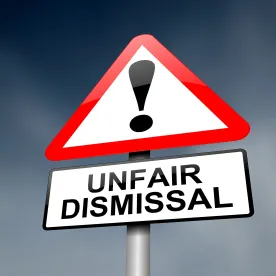For years, employers have taken comfort in a belief that unless an employment decision involves termination or financial consequences, it cannot give rise to an actionable claim under Title VII. After a recent decision from the D.C. Circuit Court of Appeals, however, even “small” employment decisions should not escape review for compliance with Title VII’s anti-discrimination requirements.
As a reminder, Title VII of the Civil Rights Act of 1964 makes it unlawful for employers “to fail or refuse to hire or to discharge any individual, or otherwise to discriminate against any individual with respect to his compensation, terms, conditions, or privileges of employment” because of one’s race, color, religion, sex, or national origin. The statute, however, provides no further guidance on the basics of what specific employment decisions or actions (aside from hiring or firing) fall within the law’s “otherwise discriminate against” catch-all.
In considering this question, employers have generally operated on the assumption that only decisions with tangible economic harm – such as terminations and pay cuts – are the types of things that fall into the “otherwise discriminate” category. In doing so, employers have had ample support from the many courts that have grafted a materiality component onto Title VII’s discrimination prohibition – usually relying on words or phrases, such as “adverse action,” that are found nowhere in the actual text of Title VII. In essence, these courts have reasoned that not all treatment, no matter how “disparate” in nature, has a serious enough effect to warrant legal action.
Thanks to a recent case from the D.C. Circuit, however, this analysis may be headed towards a shakeup. In that case, Chambers v. District of Columbia (decided on June 3, 2022), a full panel of the D.C. Circuit Court of Appeals weighed in on the specific question of whether the denial (or forced acceptance of) a job transfer falls within Title VII’s anti-discrimination prohibition.
The Chambers plaintiff (who worked as an investigator for the D.C. Office of the Attorney General) claimed that she had been denied several requests for transfers to different departments within her employer’s organization, while similar requests made by male employees were routinely granted. The employer, meanwhile, argued that under controlling authority, the denial of a request for a transfer was only actionable under Title VII if accompanied by an “objectively tangible harm.” The district court judge was persuaded by this argument, concluding that the denial of a lateral transfer request that did not involve any change in salary or benefits could not form the basis for a disparate treatment claim under Title VII.
On appeal, however, the circuit court rejected this reasoning. The recent D.C. Circuit opinion adopted a “back to basics” approach and looked directly to the language of Title VII in holding that an employer who denies a job transfer request because of the employee’s sex (or other protected characteristic) unequivocally “discriminates against” the employee in violation of Title VII – regardless of the ultimate impact (financial or otherwise) of such denial. The court gave particular weight to the plain meaning of “discrimination,” which means only “differential treatment.” In refusing to graft any materiality or sufficiency qualifier onto this prohibition, the court was clear:
The unadorned wording of the statute admits of no distinction between “economic” and “non-economic” discrimination or “tangible” and “intangible” discrimination. Nor does the statute distinguish between “subtle” or “overt” discrimination. Rather, Title VII prohibits all discrimination with respect to terms and conditions of employment.
It is unclear how this ruling will affect the overarching framework for employment discrimination claims moving forward. The court’s holding was specific to the denial or forced acceptance of a job transfer, and other circuits still apply more stringent tests in determining whether alleged acts of disparate treatment are “sufficient” to support a claim under Title VII.
But the D.C. Circuit is arguably the most prominent of the federal appeals courts, with its rulings widely cited by federal trial courts throughout the country. Therefore, the Chambers court’s reasoning – and its emphasis on the plain meaning of the statutory text – may indicate a judicial shift that could change the ultimate viability of employment discrimination claims based on “less-than-ultimate” employment actions.



 />i
/>i
